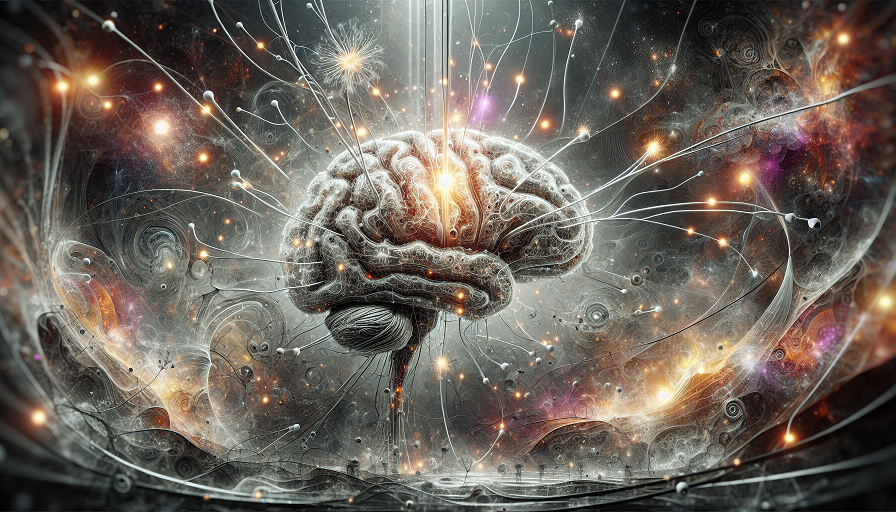
You’ve probably felt it: that sluggish, foggy mental haze creeping in during the afternoon. You stare at a menu and can’t decide what to order. You avoid emails that require a yes or no. You scroll endlessly instead of choosing what to do next. It’s not just tiredness—it’s decision fatigue.
Decision fatigue is a psychological and neurological phenomenon where your ability to make good choices deteriorates after a long session of decision-making. It doesn’t take a major life crisis to trigger it. Often, it’s death by a thousand cuts—dozens of tiny decisions that chip away at your mental clarity until your brain starts looking for shortcuts.
In our always-on, choice-saturated world, decision fatigue hits hard—and usually, it hits right around the time your lunch settles. The good news? You can outsmart it. With the right strategies, environmental adjustments, and even cognitive support like nootropics designed to improve mental endurance, you can keep your brain sharp well past the post-lunch slump.
Contents
What Exactly Is Decision Fatigue?
At its core, decision fatigue refers to the decline in quality and energy behind decisions after a prolonged session of choosing. The brain’s executive function—managed largely by the prefrontal cortex—has a finite capacity for handling choices. Just like a muscle, it gets tired from overuse.
By the time you’ve chosen an outfit, picked a breakfast, answered 20 emails, declined 5 calendar invites, and made a grocery list, your brain is ready for a nap. Even simple decisions start to feel overwhelming.
- Impulse increases: You’re more likely to choose convenience over quality.
- Procrastination spikes: You delay decisions or avoid them altogether.
- Mental shortcuts kick in: You rely on habits or defaults instead of critical thinking.
- Emotional resilience dips: Small frustrations feel heavier.
The brain starts looking for the path of least resistance. That’s why by 3 PM, many people find themselves scrolling instead of thinking, snacking instead of deciding, or saying “whatever’s fine” to everything.
The Culprit: Cognitive Overload
We often assume that stress or physical tiredness causes the afternoon crash. While those play a role, cognitive overload is often the bigger issue. When your brain is bombarded with inputs and micro-decisions all morning, its processing system starts to lag.
This is especially true in high-pressure environments—like open offices, constant emails, or high-frequency meetings—where every minute brings another choice or challenge.
The Role of Glucose
Glucose is brain fuel. Your prefrontal cortex relies on it for decision-making, focus, and emotional control. Studies show that blood sugar dips—common in the mid-afternoon—can exacerbate decision fatigue, making your thinking foggier and more reactive.
That’s why smart nutrition, hydration, and strategic breaks are essential for maintaining mental stamina. Some individuals also turn to nootropic supplements that support energy metabolism and focus, especially those that include adaptogens or B-vitamins to help stabilize brain energy throughout the day.
Signs You’re Hitting the Wall
Decision fatigue doesn’t always feel dramatic. Sometimes it shows up subtly—like apathy, avoidance, or sloppy thinking. Here are some telltale signs:
- Feeling indecisive about trivial things (e.g., what snack to choose)
- Overreacting to minor setbacks or distractions
- Impulse spending or emotional eating
- A sudden urge to take shortcuts or “just get it over with”
- Defaulting to “no” or “yes” without proper thought
Once decision fatigue sets in, your brain starts resisting further effort. That’s why major decisions late in the day can feel overwhelming—or why big thinkers like Steve Jobs and Barack Obama famously minimized decision-making in their wardrobes to save cognitive fuel for the stuff that mattered.
How to Defend Against Decision Fatigue
You can’t eliminate all decisions, but you can reduce their load and impact. Think of it like managing a mental budget—saving your cognitive “spending” for the choices that count.
1. Automate the Unimportant
Create routines and default settings for everyday decisions. What you eat for breakfast, what time you check email, or which clothes you wear can be streamlined to preserve mental bandwidth.
2. Prioritize Decisions by Timing
Make important choices earlier in the day when your cognitive tank is full. Schedule brainstorming, problem-solving, or strategic conversations before lunch.
3. Batch Similar Decisions
Group low-stakes decisions together—respond to emails in chunks, do errands in a block, plan meals for the week in one sitting. This reduces context-switching and preserves focus.
4. Take Breaks Intentionally
Short, restorative breaks help the brain reset. Walks, hydration, deep breathing, or even a few minutes of doing nothing can help restore mental clarity.
5. Support Your Brain Nutritionally
Protein-rich meals, complex carbs, and omega-3s support brain energy. Hydration is equally critical. For added cognitive support, many people use nootropic supplements that enhance mental energy, attention span, and stress resistance—especially during demanding work periods.
Nootropics and Decision Resilience
While no single supplement can eliminate decision fatigue, certain nootropics may help buffer its effects by supporting the brain’s ability to sustain effort and resist burnout. Common ingredients include:
- L-theanine: Promotes calm focus, especially when paired with caffeine
- Citicoline: Supports memory and prefrontal cortex function
- Rhodiola rosea: An adaptogen that may reduce mental fatigue and enhance resilience
- Bacopa monnieri: Traditionally used to support cognitive clarity and working memory
- B-complex vitamins: Vital for energy metabolism and neural efficiency
These supplements don’t replace sleep or lifestyle strategies—but they can serve as helpful allies, especially when your schedule doesn’t allow for perfect conditions.
Don’t Let the Afternoon Win
Decision fatigue is real—but it’s not inevitable. With the right combination of structure, mindfulness, and mental support, you can preserve your decision-making power well into the second half of your day.
Think of your brain like a battery. You can drain it by reacting to everything—or you can manage your charge, support your energy, and stay sharp when it counts. From morning routines to mindful eating, from productivity hacks to brain-enhancing nootropics, you have more control than you think.
Because when your mind stays strong past lunch, your decisions stay smart—and that’s a choice worth making.

